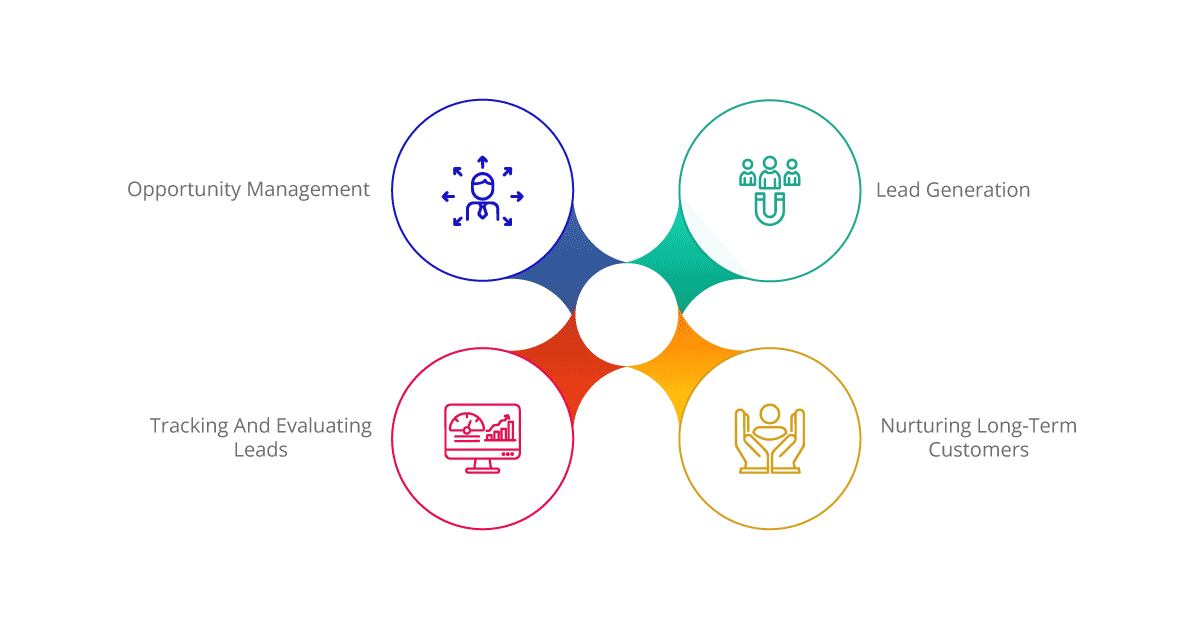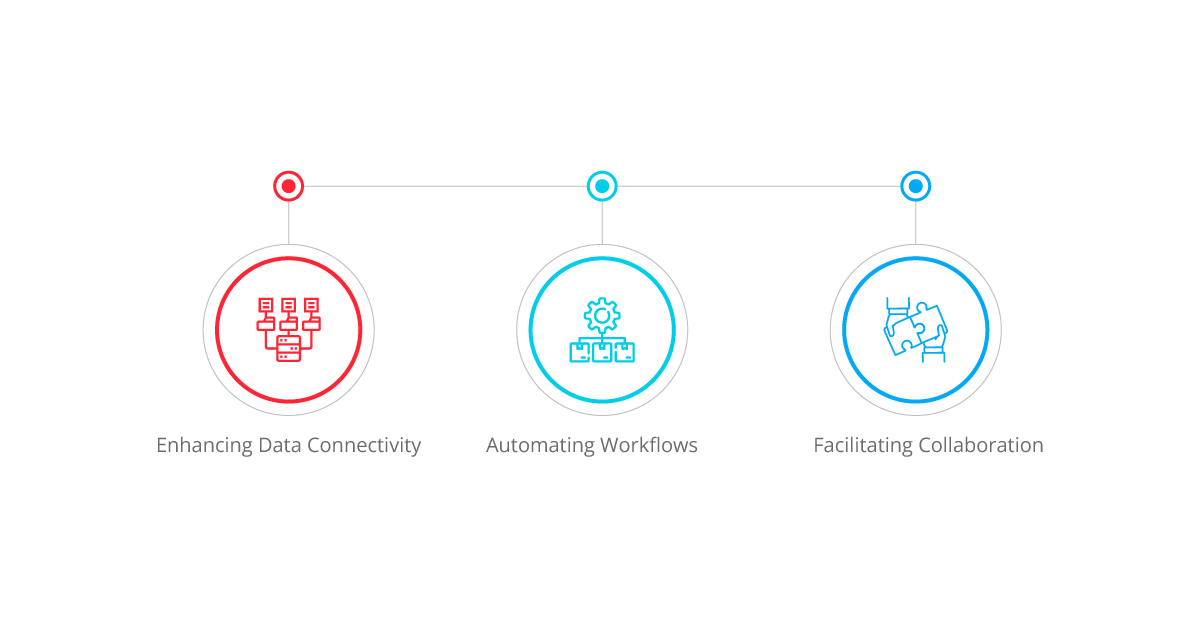Effective sales systems and processes are crucial for businesses aiming to drive revenue growth and sustain a competitive edge in today’s dynamic market landscape. However, the complexity of managing sales operations often presents challenges, including data silos, manual workflows, and disparate systems, which can hinder productivity and impede growth.
Aonflow iPaaS – Free for First 3 Months!
Build and run up to 1,500 transactions monthly with no cost. No payment info needed!
The Importance of Sales Systems and Processes
Sales systems and processes are the lifeblood of any thriving organization’s revenue generation endeavors. These integral components encapsulate a diverse array of activities, spanning from the initial stages of lead generation, through the meticulous management of opportunities, to the vigilant tracking of pipelines, and the nurturing of customer relationships through robust Customer Relationship Management (CRM) practices. By cultivating and adhering to well-defined sales processes underpinned by resilient systems and cutting-edge technologies, businesses can adeptly orchestrate their sales operations. This, in turn, empowers them to foster deeper customer engagement, optimize resource allocation, and ultimately attain their coveted revenue targets.
At the heart of an effective sales system lies the process of lead generation, which serves as the foundational stage in the sales funnel. Through strategic marketing initiatives, targeted advertising campaigns, and proactive networking efforts, businesses endeavor to attract and capture the interest of potential prospects. Once identified, these leads are systematically nurtured and guided through the sales pipeline, where they undergo a series of stages designed to qualify, prioritize, and convert them into loyal customers.
Central to the success of sales processes is the meticulous management of opportunities. By meticulously tracking and evaluating potential deals, sales teams can identify promising prospects, anticipate their needs, and tailor their approach to align with their unique requirements. This proactive approach not only enhances conversion rates but also fosters stronger customer relationships built on trust, transparency, and personalized engagement.
In tandem with opportunity management, effective pipeline tracking plays a pivotal role in ensuring the smooth progression of sales activities. By maintaining a comprehensive overview of the sales pipeline, businesses can accurately forecast revenue projections, identify bottlenecks, and allocate resources more strategically. This proactive approach enables sales teams to capitalize on emerging opportunities, mitigate risks, and adapt their strategies in real time to align with evolving market dynamics.
Furthermore, robust Customer Relationship Management (CRM) practices are indispensable for nurturing long-term customer loyalty and maximizing lifetime value. By leveraging CRM platforms, businesses can centralize customer data, track interactions, and gain valuable insights into individual preferences and behavior patterns. Armed with this actionable intelligence, sales teams can personalize their engagement strategies, anticipate customer needs, and deliver exceptional experiences that foster enduring loyalty and advocacy.
In essence, sales systems and processes serve as the linchpin of organizational success, driving revenue growth, fostering customer loyalty, and ensuring sustained competitiveness in today’s fast-paced business landscape. By embracing best practices, leveraging cutting-edge technologies, and prioritizing customer-centricity, businesses can cultivate a sales ecosystem that is agile, adaptive, and primed for long-term success.
Challenges in Sales Systems and Processes
While the significance of sales systems and processes cannot be overstated, businesses frequently confront a myriad of obstacles that undermine their efficacy and efficiency. Among these challenges, a prevalent issue is the existence of data silos – a phenomenon characterized by the segregation of critical information across disparate systems and departments within an organization. This fragmentation creates a barrier to seamless data access and exchange, inhibiting sales teams from promptly accessing and leveraging relevant insights to inform their decision-making processes. Consequently, this impediment leads to operational inefficiencies, missed opportunities, and suboptimal outcomes.
Furthermore, manual workflows and outdated processes pose significant hurdles to the smooth functioning of sales operations. In many organizations, sales teams continue to rely on antiquated methodologies and labor-intensive procedures for tasks such as data entry, lead qualification, and order processing. These manual processes are inherently time-consuming, error-prone, and resource-intensive, resulting in sluggish response times, increased administrative burden, and heightened susceptibility to inaccuracies. As a consequence, the cumulative impact of these inefficiencies manifests in delayed sales cycles, compromised customer satisfaction, and diminished revenue growth potential.
Moreover, the absence of streamlined communication channels exacerbates the challenges faced by sales systems and processes. In organizations where communication between sales teams, marketing departments, and other key stakeholders is fragmented or inconsistent, crucial information may be lost in transit, leading to misalignment, misunderstandings, and missed opportunities. This lack of cohesive communication not only hampers collaboration and coordination efforts but also undermines the collective efficacy of sales initiatives, hindering the attainment of organizational objectives.
Additionally, the rapid pace of technological innovation presents its own set of challenges for sales systems and processes. As new tools, platforms, and applications emerge at an unprecedented rate, businesses are confronted with the daunting task of integrating these disparate technologies into their existing infrastructure seamlessly. Failure to adapt to evolving technological landscapes can result in compatibility issues, data discrepancies, and operational inefficiencies, further exacerbating the challenges faced by sales teams.
Furthermore, the evolving regulatory landscape poses additional challenges for sales systems and processes, particularly concerning data privacy and compliance requirements. With the proliferation of data protection regulations such as GDPR and CCPA, businesses must navigate complex legal frameworks to ensure compliance while balancing the need for data-driven insights and personalized customer experiences. Failure to adhere to regulatory requirements can expose organizations to legal liabilities, reputational damage, and financial penalties, underscoring the importance of robust compliance mechanisms within sales systems and processes.
The challenges encountered in sales systems and processes are multifaceted and multifarious, spanning from data fragmentation and manual workflows to communication barriers and technological complexities. To overcome these obstacles, businesses must adopt a holistic approach that integrates cutting-edge technologies, streamlines communication channels and prioritizes compliance and data governance. By addressing these challenges proactively, organizations can unlock the full potential of their sales operations, drive sustainable growth, and maintain a competitive edge in today’s dynamic business landscape.
Aonflow is the leading integration platform.
You can kick-start by integrating your first-ever workflow in just a matter of minutes.
Addressing Challenges with iPaaS Solutions
iPaaS solutions emerge as a potent remedy to the myriad challenges encountered by businesses in their sales systems and processes. By furnishing a unified platform for the seamless integration and connectivity of disparate systems, iPaaS solutions herald a new era of efficiency and productivity across the sales organization.
Enhancing Data Connectivity
At the forefront of iPaaS solutions’ transformative capabilities lies their prowess in enhancing data connectivity across disparate sales channels and systems. With their seamless integration capabilities, iPaaS solutions enable the harmonious amalgamation of Customer Relationship Management (CRM) platforms, e-commerce systems, marketing automation tools, and sundry other sales-related applications. This harmonization culminates in the creation of a centralized dashboard, where sales teams can effortlessly access real-time information and insights. Armed with this comprehensive vista of customer data, sales representatives are empowered to tailor their interactions, discern cross-selling opportunities, and engender more profound engagement with prospects and customers alike.
Automating Workflows
The automation capabilities inherent in iPaaS solutions represent another cornerstone of their transformative impact on sales processes. By orchestrating the automation of routine tasks such as lead routing, data entry, and follow-up communications, iPaaS solutions liberate precious time for sales teams to devote to high-value activities, such as prospecting and relationship cultivation. For instance, iPaaS-enabled workflow automation can seamlessly allocate leads to the most suitable sales representative based on predefined criteria, thereby ensuring expeditious follow-up and maximizing conversion prospects. This strategic deployment of automation not only mitigates the risk of human error but also augments operational efficiency, driving tangible improvements in sales performance and revenue generation.
Facilitating Collaboration
Effective collaboration lies at the heart of successful sales endeavors, fostering synergy and cohesion among disparate teams toward the attainment of common objectives. iPaaS solutions emerge as enablers of seamless collaboration by integrating a plethora of communication tools, ranging from email and messaging platforms to project management software, with sales systems. This integration engenders real-time communication and collaboration among sales teams, facilitating the sharing of information, coordination of activities, and alignment of efforts. For instance, iPaaS-enabled collaboration features can furnish sales representatives with timely notifications regarding crucial updates or alterations in customer status, ensuring prompt responses and sustained customer engagement. Through the facilitation of seamless collaboration, iPaaS solutions empower sales teams to operate in concert, leveraging collective expertise and resources to drive superior outcomes and foster enduring customer relationships.
iPaaS solutions represent a paradigm shift in the realm of sales systems and processes, offering a panacea for the manifold challenges encountered by businesses. Through their ability to enhance data connectivity, automate workflows, and facilitate collaboration, iPaaS solutions empower sales organizations to operate with unparalleled efficiency, agility, and effectiveness. As businesses embrace the transformative potential of iPaaS solutions, they stand poised to unlock new realms of productivity, innovation, and growth in an increasingly competitive marketplace.
Conclusion
Sales systems and processes play a critical role in driving revenue growth and business success. However, businesses often face challenges such as data silos, manual workflows, and disjointed systems that hinder their effectiveness. Integration Platform as a Service (iPaaS) solutions offer a powerful solution to these challenges by providing a unified platform for connecting and integrating disparate sales systems and applications. By enhancing data connectivity, automating workflows, and facilitating collaboration, iPaaS solutions enable businesses to streamline their sales operations, enhance efficiency, and achieve their revenue targets more effectively in today’s competitive marketplace.
Aonflow iPaaS – Free for First 3 Months!
Build and run up to 1,500 transactions monthly with no cost. No payment info needed!


